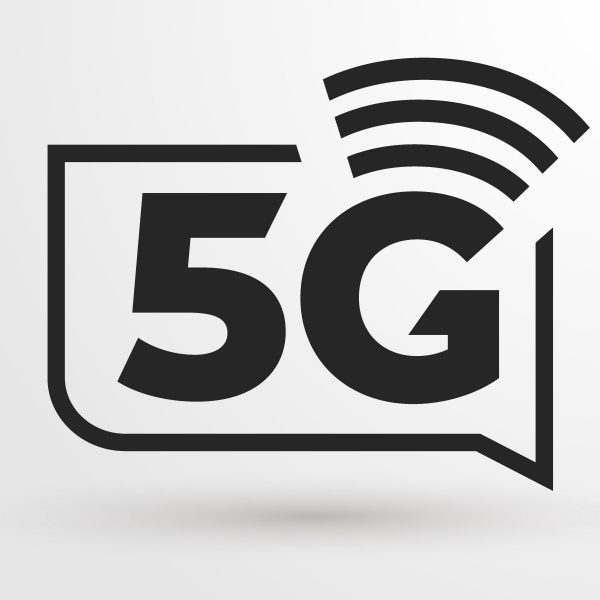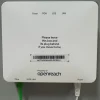Ofcom Reveal Initial Results of UK 5G Mobile Auction for 26GHz and 40GHz

The UK communications regulator, Ofcom, has this morning revealed the initial (principal stage) results from their auction of the 26GHz and 40GHz millimetre wave (mmW) spectrum bands for use by 5G mobile (mobile broadband) operators, which saw EE (BT), O2 (Virgin Media) and Vodafone (VodafoneThree) pay a combined £39m to secure more airwaves.
Overall EE, O2 and VodafoneThree each won 800MHz of spectrum frequency in the 26GHz band and 1GHz of spectrum frequency in the 40GHz band – each paying £13m for this spectrum. The total revenue raised from the Principal stage is £39m, which will now go to HM Treasury. But this isn’t the end of the process.
Just to recap. The major mobile network providers already have access to several 5G capable bands between 700MHz and 3.8GHz. Such frequencies reflect the same sort of low and mid-band radio spectrum that the mobile operators have been using since the advent of the first 3G and 4G data networks.
Advertisement
The move to auction off 26GHz (25.1-27.5GHz) and 40GHz (40.5-43.5GHz) is intended to complement those existing bands by providing lots of additional spectrum frequency, which means more data capacity for extremely fast speeds (e.g. multi-Gigabit).
However, such high frequency mobile signals tend to be very weak and can’t cover a wider area without a much denser and thus more expensive network, which in practice means they’ll primarily be used for serving busy urban areas (shopping malls, airports etc. – “High Density Areas“) and fixed wireless broadband (FWA) links. This is why Ofcom has made the spectrum available in a clock auction (200MHz lots) with 15-year licences across 68 “high-density” areas (i.e. cities and select transport hubs).
The detailed results from the first principal stage of this auction can be seen below, which saw the three operators bid for airwaves in ‘lots’ to determine how much spectrum each company wins in each band, but not the specific frequencies within each band.

Advertisement
David Willis, Ofcom’s Group Director for Spectrum, said:
“Today’s results are an important milestone on the path to better, faster 5G. The large amount of spectrum we’ve released will help support innovation, open doors to new applications and growth, and can bring noticeable improvements to mobile services in busier places up and down the UK.”
The auction will now move to the final Assignment Stage, which is where the operators will be able to determine the specific frequencies that winning bidders will be allocated. The catch is that it will take time for the network operators to fully harness the new bands, not least because many modern devices (Smartphones, routers etc.) don’t yet support them, and they’ll also need to upgrade their respective networks.
Mark is a professional technology writer, IT consultant and computer engineer from Dorset (England), he also founded ISPreview in 1999 and enjoys analysing the latest telecoms and broadband developments. Find me on X (Twitter), Mastodon, Facebook, BlueSky, Threads.net and Linkedin.
« University of Portsmouth Team Get £772k to Develop Subsea Cable Surveillance
Advertisement
Leave a Reply Cancel reply
Privacy Notice: Please note that news comments are anonymous, which means that we do NOT require you to enter any real personal details to post a message and display names can be almost anything you like (provided they do not contain offensive language or impersonate a real person's legal name). By clicking to submit a post you agree to storing your entries for comment content, display name, IP and email in our database, for as long as the post remains live.
Only the submitted name and comment will be displayed in public, while the rest will be kept private (we will never share this outside of ISPreview, regardless of whether the data is real or fake). This comment system uses submitted IP, email and website address data to spot abuse and spammers. All data is transferred via an encrypted (https secure) session.























































The fact that each player has ended up paying exactly the same amount smacks of a cosy deal than a competitive auction. A world away from the heady days of the 3G auction.
on the contrary, I think it reflects the value of the spectrum on offer. These are niche bands for adding capacity in extremely dense areas. They are not going to see widespread use.
Any one know what happened to band 77 ( 4000mhz ) ?
Ofcom supposed to auction 4000mhz aswell.
That’s (3.7-4.2GHz) long been held by Three UK (previously UK Broadband Ltd) for use in 5G. Some parts of the band are also allocated to private networks and shared access services.
Thank you mark. Is Vodafone/three still using for 5g
What annoys me is the fact this money goes directly into the government coffers as it doesn’t cost them anything to auction it off.. they should be giving it away so it reduces prices being increased on the consumer. But I expect it’ll help pay for a few MP’s pension pots and house refurbishments eh 😉
The auction raised £39m – so do you want to refund £1 to each taxpayer?
@chris you didn’t read my comment did you, that is not £1 per tax payer, that is 12 million pounds onto the customers of each provider… if they gave the spectrum away that cost wouldn’t exist to be passed onto the consumers.
@me
Are you seriously thinking the networks would pass on savings? You must be idealistic. These are the same networks that all swore up and down Brexit would not change roaming privileges then within 12 months all but o2 turned their backs on it. Three was the worst culprit as they explicitly said they would not change a thing as a result of Brexit.
Respectfully give it a wobble if you believe that they’d pass on savings.
Genuine question, why is this being sold off so cheap, compared to previous ofcom spectrum auctions?
Ofcom are probably recognising that it has limited use-cases and thus its economic impact is likely to be much lower than higher value mid and low bands, which deliver good coverage. If they were to make it too expensive, then mobile operators wouldn’t even bother.
I guess supply vs demand too – there’s lots of spectrum on offer, they didn’t need to heavily outbid eachother to get what they needed